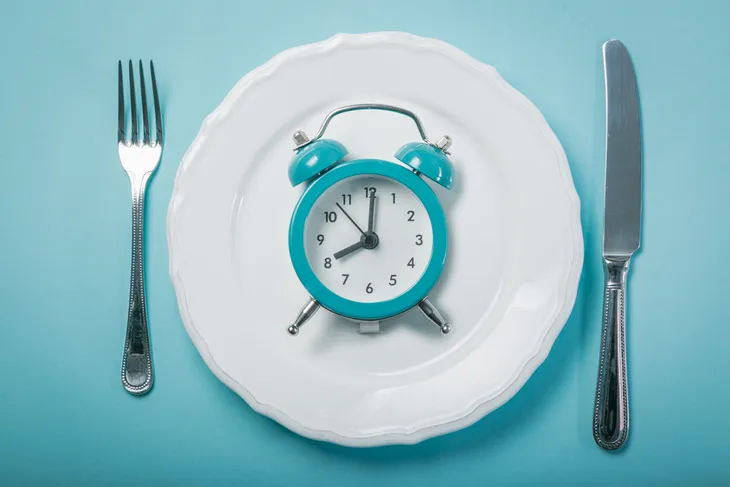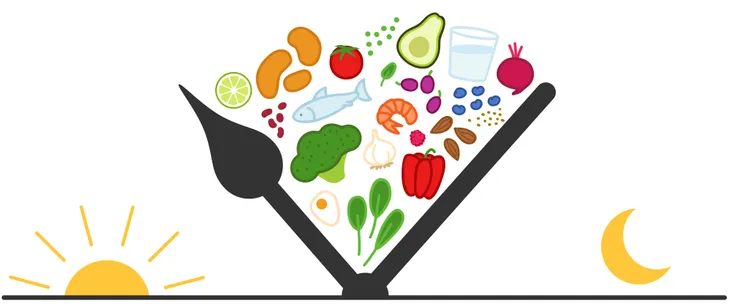Diet fads come and go, but something that has stuck with many people is intermittent fasting. This type of diet involves eating only during a certain time period each day. It‘s something people do to lose weight, reduce calorie intake, and even lower the risk of developing certain diseases.
Intermittent fasting has been proven to achieve health benefits, but is anti-aging one of them? Here’s what you need to know about this diet and what it can do for you as you grow older.
What Is Intermittent Fasting?
When you hear the word fasting, you might think it’s an extreme and unhealthy way to diet. But intermittent fasting does not mean food deprivation. Healthline describes it simply as an eating pattern where you cycle between periods of eating and fasting.
For example, fasting overnight while you sleep and only consuming meals during an 8-hour window when you’re awake.
Rather than dwelling entirely on what foods to eat, you focus on when you eat. Even though you don’t eat during the fasting period, you can still drink water, coffee, tea, and other low-calorie beverages. Restricting yourself to a window of eating may help people lose weight and achieve other health benefits.
Potential Anti-Aging Benefits
You can achieve potential anti-aging benefits with intermittent fasting. For example, overweight adults may lose weight with this food schedule. BioAge Health says limited calories also enhances energy production. Both is likely secondary to intermittent fasting (if done correctly) should put a person in calorie deficit.
These two factors can lower the risk of chronic disease, therefore lowering your chances of developing chronic illnesses that shorten your lifespan. Some examples include diabetes, heart disease, and cancer.
How to Get Started
Mickelson says he fasts for a day and a half every week and makes an effort to eat healthy the remaining days. Every three months, he goes on longer fasts that last three days. But it isn’t necessary to do extreme fasting like a pro athlete to achieve anti-aging and physical benefits.
You can give yourself longer windows of time in the day to eat and still achieve a healthier lifestyle. Healthline says the most popular intermittent fasting schedule is the 16/8 method. This means you will fast for 16-hours, then give yourself an 8-hour eating window.
Intermittent Fasting Plans
You can choose an intermittent fasting schedule that works best for you. Maybe you want a bigger window to eat throughout the day or would prefer to fast for a longer period of time. There are different combinations to consider.
Some examples of intermittent fasting plans include:
- The 14:10 Diet — Fasting for 14-hours, and eating within a 10-hour window.
- 5:2 Method — Eat normally five days a week, then cut back to 20-percent of your diet the other two days.
- Eat-Stop-Eat — Fasting for 24 hours once or twice every week and eating normally the other days.
- Alternate-Day Fasting — Fasting every other day, or cutting back on calorie intake on fasting days.
Fasting Is Not for Everyone
It’s important to note, intermittent fasting is not for everyone. It has potential side effects that can put your health at risk, which is why you should talk to your doctor before starting any new diet regimen. They can help you choose a plan that’s best for you, or let you know that it’s not an ideal lifestyle for you.
Harvard Health says intermittent fasting may have side effects such as the following.
- Feeling unwell with headaches, lethargy, crankiness, or constipation.
- Overheating.
- Older adults may lose too much weight.
- Potential dangers for people taking certain medications.
 Syda Productions / Shutterstock
Syda Productions / ShutterstockChoose Healthier Foods
Intermittent fasting is just one example of something that may promote anti-aging effects. If it’s not something you’re interested in, there are plenty of other things you can do instead — starting with your diet.
Health says to fill up on fermented foods since they’re good for your gut and skin. They also carry antioxidant and anti-inflammatory properties, which could prevent premature aging. Opt for lean proteins over red meats, healthy fats over saturated fats, and drink lots of water.
Cut Back on Certain Foods
Be aware of certain foods you put in your body (and how much you eat). They can be packed with ingredients that speed up the aging process. For example, salt can increase your risk of high blood pressure and stroke. It also makes your face appear puffy and can cause your stomach to feel bloated.
Salt isn’t the only culprit. Having too many refined sugars can lead to obesity, diabetes, and heart disease. These conditions can potentially shorten your lifespan. With this in mind, limit your sugar intake as much as you can to lower your risk of health problems.
Get Plenty of Sleep and Exercise
Your diet isn’t the only thing that has an impact on the aging process. Sleep and exercise play a role too. Healthline says to aim for 7 to 8-hours of sleep every night to improve focus, reduce stress, lower the risk of diseases, and more.
Further, getting physically active can also lower your risk of diseases too. Plus, it can keep your body in good shape. Whether it be cycling, swimming, or simply walking, any movement is good movement.
More Ways to Age Well
Every aspect of life has an impact on the aging process. Some other ways to promote healthy aging include:
- Wearing sunscreen every day.
- Taking care of your mental health.
- Lowering stress levels.
- Don’t smoke and limit alcohol consumption.
- Embrace the aging process.











